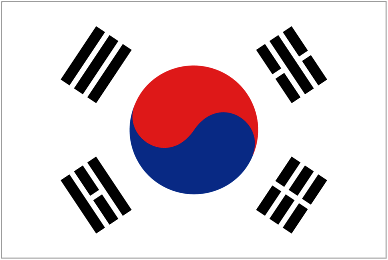Part 2 of 3 Parts (Please read Part 1 first)
While U.S. officials value ambiguity in nuclear weapons policy to allow the president a range of options (and to avoid endless policy debates), the prevailing theory in S.K. is that this kind of ambiguity weakens deterrence and signals wavering commitment from the U.S. However, the U.S. would never make this commitment. The U.S. president reserves the right to decide on nuclear weapons deployment in a specific situation because they would like to consider an array of important factors specific to the crisis. They would almost certainly prefer to find an effective alternative to the use of nuclear weapons. They would also want to consider S.K.’s preferences which may disapprove of U.S. nuclear use on the peninsula, especially under another president. When he was inevitably rebuffed, S.K.’s President Yoon Suk Yeol apparently stated his preferred policy on behalf of the alliance at the White House. He wanted to bluff with U.S. nuclear weapons. Unfortunately, this was just the latest in a series of misstatements about alliance nuclear policy by President Yoon or senior members of his administration. Taken together, these actions signal increasingly severe friction in the alliance.
Other plans range from forward deployment of U.S. nonstrategic nuclear weapons to the peninsula, offering S.K.’s officials a role in U.S. nuclear deployment planning, or the creation of a nuclear-sharing arrangement that may or may not resemble the one in NATO. The critical feature of all such proposals is that none of them would provide S.K.’s officials with additional information about when, where, and why the United States would use a nuclear weapon on the peninsula. None of these plans would dispel their anxieties.
Toby Dalton is the co-director of the Nuclear Policy Program at the Carnegie Endowment for International Peace. He has presented a helpful taxonomy of the differing logics behind calls for additional nuclear integration within the alliance. Zealots believe that only a nuclear weapon can deter a nuclear weapon. They will never feel secure until a S.K.’s president of their own party has release authority over nuclear weapons. Bargainers may hold real anxieties over extended deterrence. However, they will exploit them in order to extract concessions from the U.S. Populists simply support nuclear proliferation or nuclear sharing as a kind of signal to appear hawkish on foreign policy. Zealots have been dominating the conversation. They have coopted the other groups to push for an indigenous nuclear weapons program or nuclear sharing. Few officials, in S.K. or in the U.S., have confronted this narrative.
This fixation on nuclear weapons is to the detriment of other capabilities. This includes S.K.’s own exceptional conventional defense and deterrence posture. It is corrosive to the alliance. Further increasing the relevance of nuclear weapons cannot address anxieties, only fuel them. If U.S. officials cannot shift the alliance’s attention to nonnuclear deterrence and educate S.K.’s public opinion to support the shift, demand for nuclear sharing and/or nuclear proliferation will continue to increase.
It was in this context that Yoon and U.S. President Joe Biden launched the Washington Declaration in April of 2023. This summit could be considered the swan song of nuclear assurance. It established a new Nuclear Consultative Group (NCG), expanded tabletop war games between the allies on nuclear weapons issues (including with U.S. Strategic Command), and announced a presidential commitment to make every effort to consult with S.K.’s president before using a nuclear weapon on the peninsula. This spring, S.K.’s officials visited the US SSBN base at King’s Bay and the SSBN USS Kentucky sailed to Busan.
Please read Part 3 next
Nuclear Weapons 847 – South Korea Seeks Reassurances About U.S. Nuclear Umbrella – Part 2 of 3 Parts

